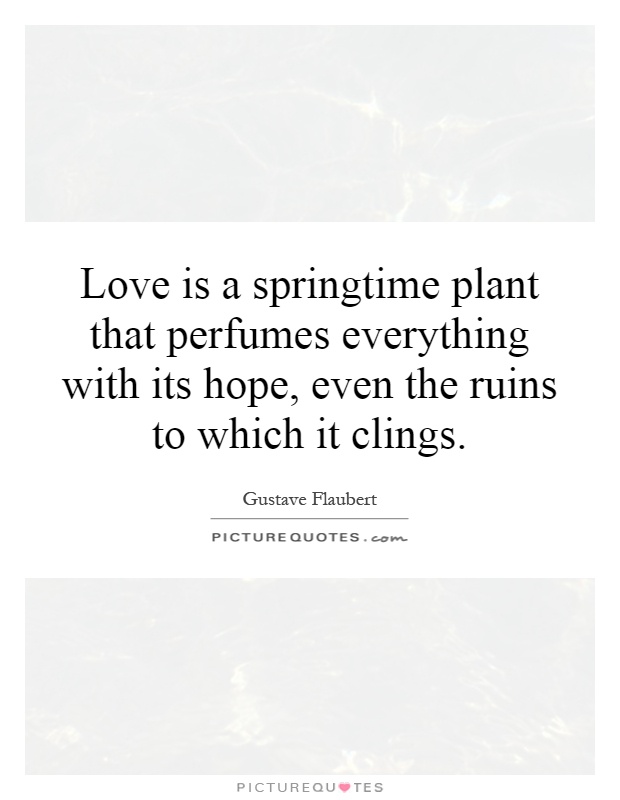Love is a springtime plant that perfumes everything with its hope, even the ruins to which it clings

Love is a springtime plant that perfumes everything with its hope, even the ruins to which it clings
Gustave Flaubert, a renowned French novelist known for his realistic portrayal of human emotions and relationships, often explored the complexities of love in his works. The quote “Love is a springtime plant that perfumes everything with its hope, even the ruins to which it clings” perfectly encapsulates Flaubert’s understanding of love as a powerful force that can transform even the most desolate of circumstances.In Flaubert’s most famous work, Madame Bovary, the protagonist Emma Bovary’s pursuit of love and passion leads her down a destructive path that ultimately ends in tragedy. Emma’s relentless search for romantic fulfillment and escape from the mundane realities of her life mirrors the quote’s sentiment of love clinging to ruins. Despite the inevitable downfall of Emma’s affairs and the ruinous consequences of her actions, Flaubert portrays love as a force that imbues even the darkest moments with a sense of hope and possibility.
Flaubert’s exploration of love as a springtime plant that perfumes everything with its hope can also be seen in his novel Sentimental Education. The protagonist Frédéric Moreau’s idealized notions of love and his pursuit of unattainable romantic ideals lead him to make questionable decisions and ultimately face disappointment. However, Flaubert’s portrayal of Frédéric’s romantic entanglements and his enduring belief in the transformative power of love highlights the enduring nature of love as a source of hope and renewal.
Flaubert’s own personal experiences with love and relationships may have influenced his portrayal of love in his works. His tumultuous affair with writer Louise Colet and his deep emotional connections with his close friend George Sand demonstrate his complex understanding of love as a force that can both uplift and destroy. Through his characters and their relationships, Flaubert delves into the intricacies of love as a springtime plant that can bring beauty and fragrance to even the most barren of landscapes.












 Friendship Quotes
Friendship Quotes Love Quotes
Love Quotes Life Quotes
Life Quotes Funny Quotes
Funny Quotes Motivational Quotes
Motivational Quotes Inspirational Quotes
Inspirational Quotes